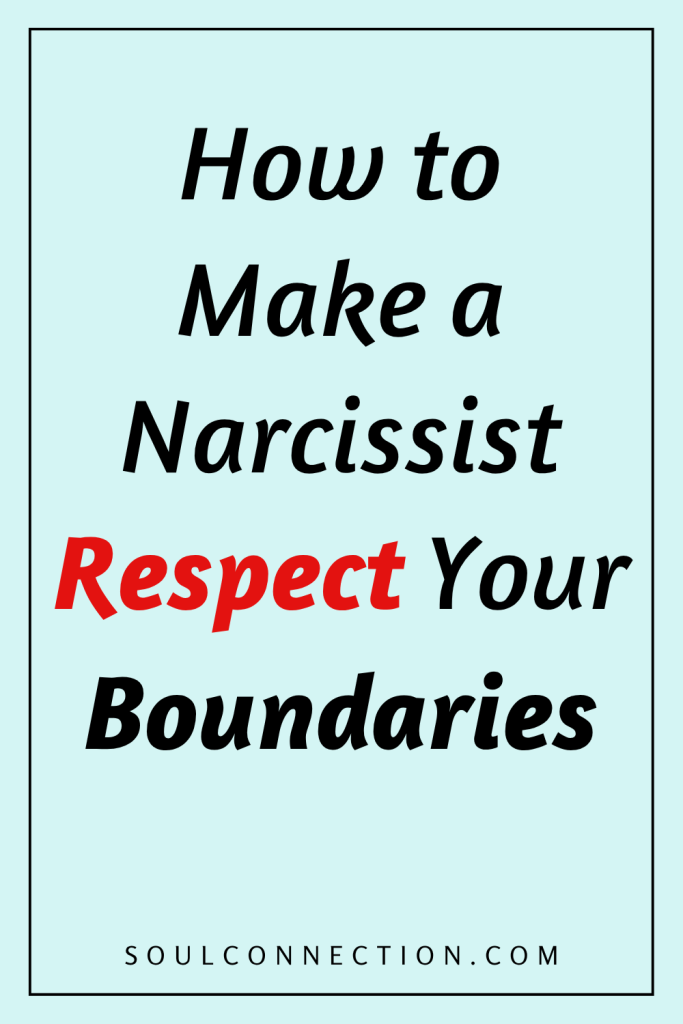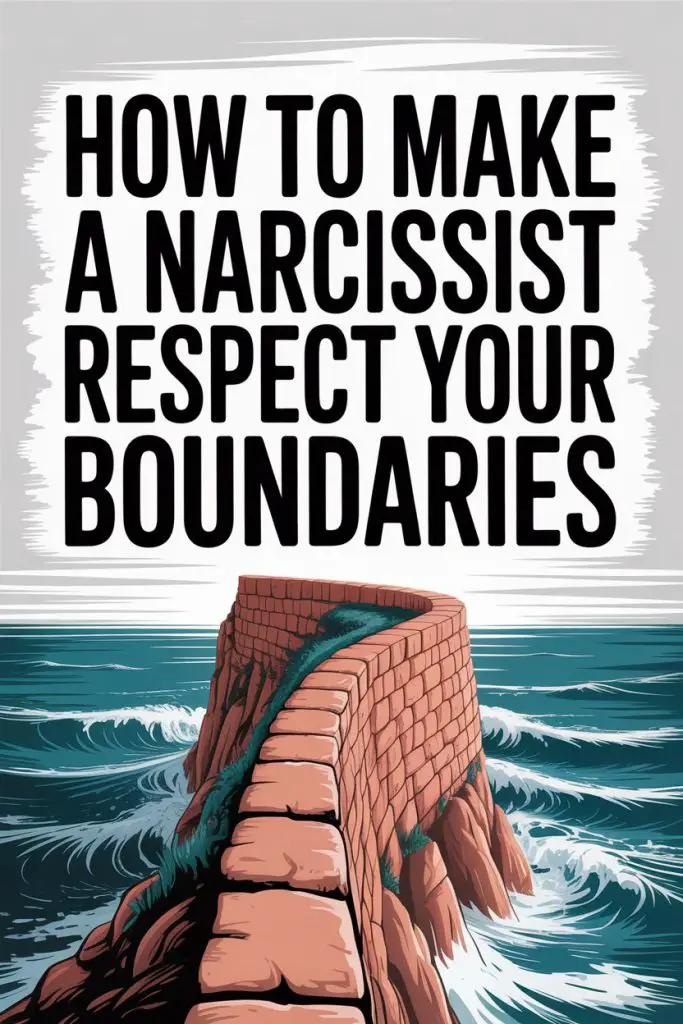Narcissists: can’t live with them, can’t get through a single family dinner without wanting to hide under the table. If you’ve tried to set a boundary with one, you know it’s about as effective as asking a cat to do your taxes.
But boundaries aren’t just self-care fluff—they’re essential armor. Here’s how to make yours stick, even when you’re dealing with someone who thinks the sun rises solely for their benefit.
Recognizing the Narcissist’s Playbook
If you want to hold your ground, knowing what you’re up against is half the battle (the other half involves deep breaths and possibly chocolate). Narcissists are experts at pushing buttons and moving goalposts.
Sometimes they act confused—“What boundary? I thought we agreed you’d always answer my calls!” Sometimes, they just bulldoze right over your polite ‘no’ as though it’s a mere suggestion.
Spotting their favorite tricks will leave you less rattled:
- Gaslighting (“You’re being too sensitive, as usual.”)
- Guilt trips (“Wow, after all I’ve done for you? Really?”)
- Love bombing (“You’re my favorite person ever, now let’s do what I want.”)
- Playing the victim (“No one ever thinks about my feelings around here!”)
Recognize these moves and suddenly, their magic act becomes a lot less magical.
Clarity Is Your Secret Weapon
Vague boundaries are music to a narcissist’s ears. “I need a little space” can mean anything from “Give me a day” to “Don’t text me for a week.”
Guess which option they’ll pick? That’s right: whichever one suits them.
Spell it out like you’re explaining phone settings to your grandma. “I won’t be available for phone calls after 9pm.” “I won’t discuss my finances with you.” “If you raise your voice, I’ll leave the conversation.” Then, repeat as needed.
Consistency is the only language that sticks.
The Power of the Broken Record
Narcissists love to debate. They’ll try to wear you down with endless questions, guilt, or appeals to your sense of fairness. If you get sucked into justifying your boundary, you’re in for a long (and pointless) ride.
Channel your inner broken record. Pick a direct phrase—“I’m not discussing this”—and stick to it. No matter how many times they poke, prod, or huff, don’t budge.
Yes, it’ll feel awkward at first. Yes, they might escalate. But practicing this will teach them you’re not a vending machine for their demands.
Emotion Management Is Half the Battle
Narcissists treat other people’s feelings like optional extras. When you set a boundary and they react—anger, tears, Oscar-worthy outrage—your own guilt and discomfort get tested.
Here’s the thing: their reaction isn’t your fault. Your feelings are real, but remember whose circus this is. If you can manage your anxiety without folding, you show them their drama won’t get the desired result.
Imagine you’re dodging flying monkeys, not engaging them in polite conversation.
Try a classic: “I can see you’re upset. My decision stands.”
Prepare for Pushback
If only boundary-setting worked like a gentle spell—one wave of your wand and poof, respect. Instead, expect the opposite. Narcissists like the status quo, thank you very much.
When you enforce your limits, the price might be sulking, more intense manipulation, or an outburst that could power a small city.
This isn’t a sign you’re doing it wrong. It’s a sign you’re doing it right. Pushback means your boundaries are being noticed.
Stay calm, reassert your line, and resist the urge to apologize for taking up space. You deserve it.
Don’t Play the Explaining Game
Ever tried to reason with a narcissist? It’s like arguing with your GPS about shortcuts—it just keeps recalculating to the route it wants. Narcissists aren’t interested in your ‘why.’
They’re listening for cracks in your logic so they can wedge their way back in.
Keep explanations brief or skip them entirely. “I’m not available.” “That doesn’t work for me.” You don’t owe anyone a TED Talk on your needs, least of all someone who won’t listen.
Consequences Are Your Friend
A boundary with no consequence is just a strongly worded wish. Narcissists need evidence that your limits aren’t up for negotiation. Consistency is key—follow through every time.
If you say you’ll leave a conversation when it gets abusive, actually leave. If you promise to hang up, hang up. No need for drama; just act.
Over time, even the most self-absorbed personality will realize your boundaries have teeth.
Outsmarting the Guilt
Narcissists have PhDs in Guilt Tripping. They know just what to say to make you question your backbone: “Wow, I guess I just don’t matter to you.” “Everyone else thinks I’m great.” “I thought you were different.”
Keep your eyes on the prize. Boundaries aren’t mean, selfish, or dramatic. They’re about protecting your well-being.
If you start to falter, phone a friend, journal, or remind yourself how you felt before you set these limits. Spoiler: probably not great.
Make Self-Care Non-Negotiable
Picture this: you’ve set a boundary, survived the backlash, and now you’re emotionally knackered. Self-care isn’t a reward for setting boundaries—it’s the fuel that helps you keep them.
Eat. Sleep. See your mates. Watch TV that doesn’t involve narcissists winning reality shows. This replenishes your energy and reminds you there’s a bigger world outside your relationship with this person.
Get Support from the Peanut Gallery
Solo boundary-setting with a narcissist is a herculean task. The more support you have, the easier it gets. Trusted friends, support groups, or a therapist can help you sense-check your limits and build your confidence.
Sometimes, just hearing, “Yep, that sounds totally reasonable,” is all it takes to make your resolve unbreakable.
Know When to Step Back
Some narcissists are allergic to boundaries. If you’ve tried everything and they still bulldoze, consider stepping back from the relationship, even if only temporarily.
That might mean more physical distance, reduced contact, or (in extreme cases) going full no-contact.
This isn’t failing—it’s advanced self-preservation. No one’s obligated to keep showing up for someone who refuses to respect basic decency.
When Boundaries Start Working
If you’re consistent, clear, and unflappable, even the most stubborn narcissist may eventually start to get the picture. They might not thank you for it, but you’ll notice little shifts—less pushback, more caution before they cross the line, or at least less drama when you say no.
And if they don’t? Well, you’ll be stronger, clearer, and a lot less likely to accept nonsense from anyone in the future.
Respecting Yourself Is the Real Goal
Teaching a narcissist to respect your boundaries isn’t about changing them. It’s about changing the rules of engagement.
The real win? You start respecting yourself a lot more. You remember that your time, energy, and peace are valuable.
If the narcissist in your life can adjust, great. If not, you’ve still gained something far more precious—the ability to stand your ground, with or without their approval.
And honestly, there are worse things than disappointing a narcissist. Like letting your own needs get steamrolled for another year.
Pass the boundaries, please. They go with everything.


